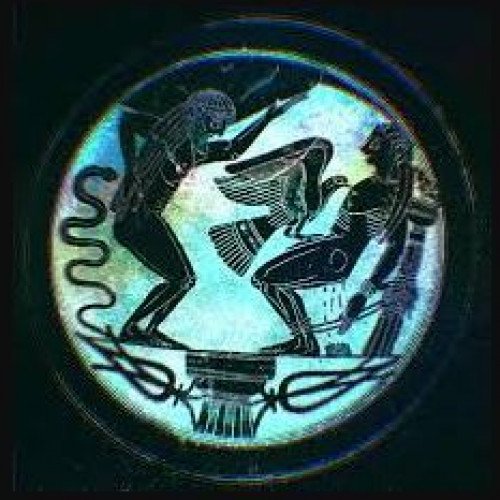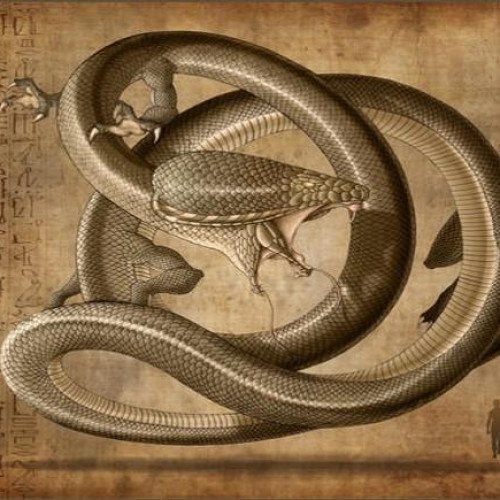Aethon VS Apep

Aethon
The ancient Greek word aithôn means "burning", "blazing" or "shining." Less strictly, it can denote the colour red-brown, or "tawny." It is an epithet sometimes applied to animals such as horses at Hom. Il. 2.839 ; oxen at Od.18.372; and an eagle at Il. 15.690 (cf. Hyginus' calling the eagle that tormented Prometheus an aethonem aquilam at Fabulae 31.5.). The eagle who tormented Prometheus, Aethon, was the child of the monsters Typhon and Echidna. In English, aithôn may be written Aethon, Aithon or Ethon. In Greek and Roman mythology there are a number of characters known as Aethon. Most are horses, variously belonging to: Helios Ares Hector Pallas Hades (Claudian)The name is twice applied to humans. In Odyssey 19.183, it is the pseudonym a disguised Odysseus assumes during his interview with Penelope upon his return to Ithaca. According to fr. 43a.5 of Hesiod's Catalogue of Women, Erysichthon of Thessaly was also known as Aethon due to the "burning" hunger (aithôn limos) he was made to endure by Demeter.
Statistics for this Xoptio

Apep
Apep ( or ; also spelled Apepi or Aapep) or Apophis (; Ancient Greek: Ἄποφις) was the ancient Egyptian deity who embodied chaos (ı͗zft in Egyptian) and was thus the opponent of light and Ma'at (order/truth). He appears in art as a giant serpent. His name is reconstructed by Egyptologists as *ʻAʼpāp(ī), as it was written ꜥꜣpp(y) and survived in later Coptic as Ⲁⲫⲱⲫ Aphōph. Apep was first mentioned in the Eighth Dynasty, and he was honored in the names of the Fourteenth Dynasty king 'Apepi and of the Greater Hyksos king Apophis.